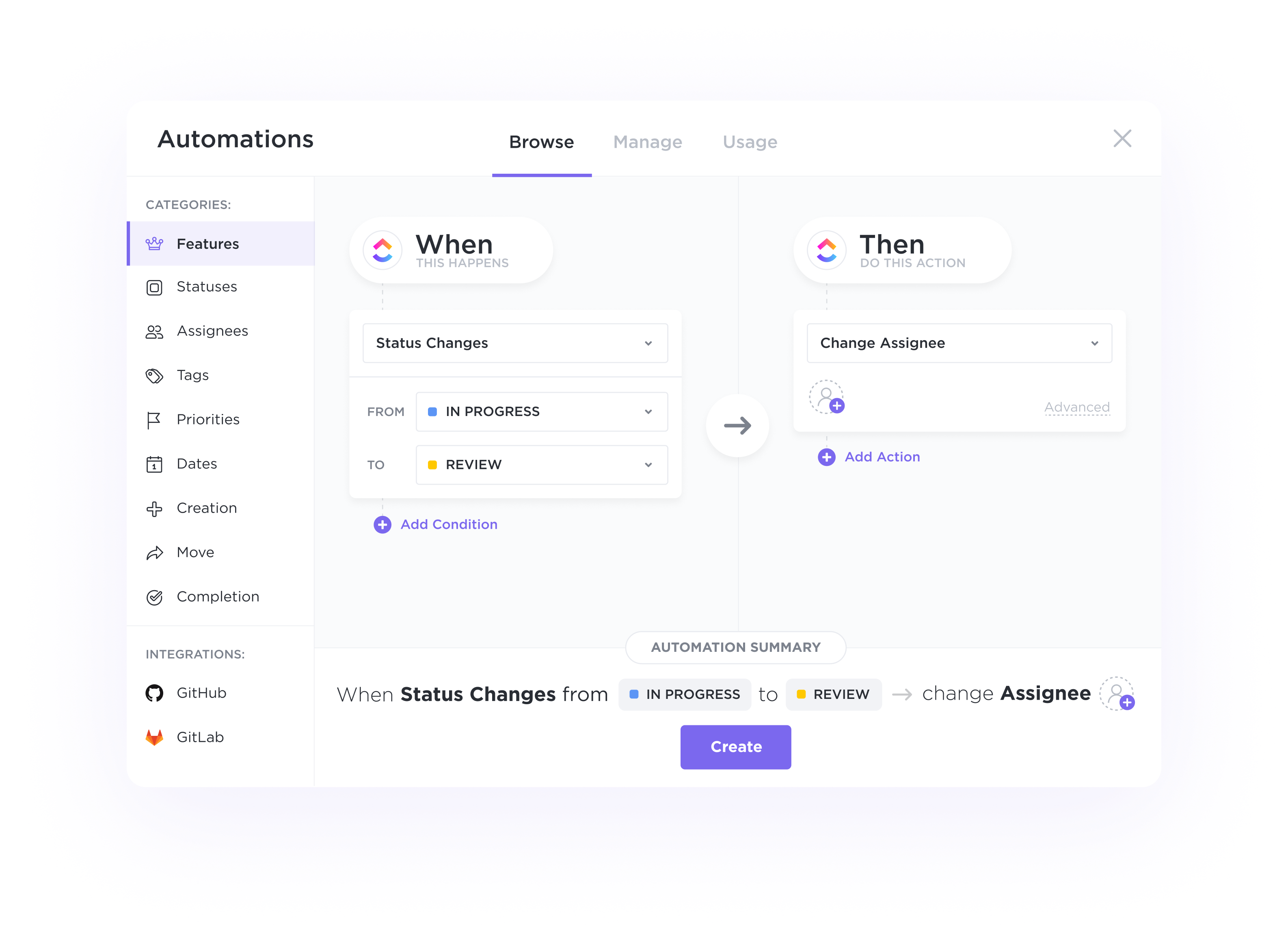Automate handoffs, status updates, and more.
Automatically assign tasks for each stage of your pipeline, trigger status updates based on activity, and switch priorities to alert your team on where to focus next.

Supercharge your journalism workflow with ClickUp's customizable CRM system designed specifically for journalists. Streamline your contacts, track story leads, and manage deadlines seamlessly all in one place. Say goodbye to scattered spreadsheets and hello to a more efficient way of managing your relationships and stories with ClickUp.
Free forever.
No credit card.
Trusted by the world’s leading businesses
Automatically assign tasks for each stage of your pipeline, trigger status updates based on activity, and switch priorities to alert your team on where to focus next.

Eliminate silos and fast-track communication by integrating your emails with ClickUp. Collaborate on deals, send project updates to clients, and onboard customers with a single email hub.

Capturing Sources: Journalists can use CRMs to capture potential sources for their stories from various channels such as interviews, press releases, or social media.
Qualifying Leads: By setting criteria such as reliability, relevance, and availability, journalists can qualify leads to prioritize and focus on the most valuable sources.
Nurturing Relationships: CRMs help journalists nurture relationships with sources by tracking past interactions, storing contact information, and scheduling follow-ups.
Visual Story Progress: Journalists can visually map out the progress of their stories in the pipeline, from ideation to publication, ensuring nothing falls through the cracks.
Deadline Management: CRMs can help in setting deadlines for different stages of story development, keeping journalists on track and ensuring timely delivery.
Collaborative Workflows: Enable collaboration among journalists, editors, and other team members by sharing story drafts, feedback, and revisions within the CRM platform.
Data Collection: CRMs can assist journalists in collecting and organizing research data, interviews, statistics, and other information related to their stories.
Data Analysis: Journalists can utilize CRMs to analyze data trends, identify patterns, and draw insights to support their story narratives.
Data Security: With features like encryption and access controls, CRMs help journalists secure sensitive research data and protect sources' confidentiality.
Source Management: Journalists can track and categorize their sources based on expertise, reliability, and availability, making it easier to reach out for future stories.
Contact History: CRMs maintain a detailed history of interactions with sources, including past stories, quotes used, and feedback received, enhancing relationship continuity.
Source Diversity: By tracking source diversity metrics, journalists can ensure varied perspectives and voices are represented in their reporting, promoting inclusivity and balanced coverage.
A CRM software for journalists offers features like contact organization, interaction tracking, source categorization, and personalized communication tools to help manage contacts and sources effectively.
Yes, a CRM software for journalists can integrate with email clients and content management systems commonly used in newsrooms, streamlining communication, content creation, and data management processes for improved efficiency and collaboration.
A CRM software for journalists can assist by centralizing story leads and pitches, organizing contacts and communication history, setting reminders for follow-ups, and providing a clear overview to prioritize source interactions effectively.